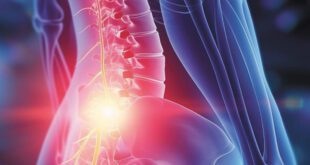Since heart disease is still the leading cause of death in both men and women, it’s important to understand symptoms and implement heart health and risk prevention?
Indicators for Women & Men
Why is it so important to differentiate between heart and stroke risks for women and men? It’s unfortunate, but women’s heart attack and stroke episodes are on the rise and women often overlook the signs and symptoms that are plaguing them day in and day out.
Heart Disease is the number one killer of women, taking 1 out of 3 women’s lives each year. With so much focus on other diseases that affect females, like breast cancer and autoimmune diseases, heart disease is often overlooked and underestimated. One woman dies every minute of cardiovascular disease.
Heart disease is the narrowing of the arteries over time, due to a build-up of plaque that can in some cases cause a complete blockage of the blood vessels or coronary arteries. The signs for women are often different than the symptoms commonly associated with men at risk of Coronary Artery Disease (CAD), or a heart attack.
Female Heart Attack Symptoms
• Excessive sweating
• Sleep disturbances
• Shortness of breath, fatigue
• Pain in the jaw
• Shoulder pain
• Upper back pain
• Neck pain
• Nausea
• Abdominal pain
Male Heart Attack Symptoms
• Chest Pain and tightness
• Lightheaded
• Dizzy
• Tired/Fatigue
• Shortness of breath
• Anxiety
• Rapid heart rate
• Sweating
• Grayish color to skin
• Arm/Shoulder Pain
• Abnormal heart palpitations
When hormones are out of balance, additional factors such as high cholesterol, high blood pressure, and weight gain start to take place. All of these symptoms contribute to CAD.
Linking hormonal changes to the increase in women developing heart disease are also marked by risk factors such as having had gestational hypertension or gestational diabetes. Along with menopause and the related hormonal fluctuations, eating a diet high in saturated fats, having uncontrolled hypertension or high cholesterol, being overweight, mental anxiety or unresolved stress, and smoking or previously smoking all play a considerable role in CAD. For men, many heart issues are brought on by stress and unhealthy dietary and lifestyle habits.
For Both Men and Women, Keeping Track of Your Numbers Could Save Your Life:
• Hormones
• Cholesterol
• Blood Sugar
• Body Mass Index (BMI)
• Weight and Waist fluctuations
• Blood Pressure
Depression plays a role in both pre and post-heart attacks. For example, stress can lead to high blood pressure, arterial damage and a weakened immune system, which can exacerbate a myocardial infarction. For those individuals that have suffered a heart attack or those that have undergone heart procedures, depression can linger for weeks following their episode. If the condition is not dealt with, it can lead to chronic depression, which will hinder healing and may because additional health issues to arise.
Men and Women can be treated successfully if CAD is caught early. Usually keeping weight down with a healthy diet, keeping the heart muscle strong and oxygen-rich blood flowing through cardiovascular exercise are helpful, along with medications like ACE inhibitors, alpha-beta blockers, and cholesterol-lipid lowering drugs.
In addition, there are specific procedures and screenings that your cardiologist can provide to decipher how healthy your heart and arteries are; these include blood tests, stress tests, EKG’s, Holter monitors, vascular ultrasounds, and scans.
Dr. Vallabhan
352-750-2040
Rolling Oaks Professional Park
929 N US HWY 441, Suite 201
Lady Lake, FL 32159
Check Also
Revitalize Your Mental Health with the Theta Chamber at Keep Young Wellness Center
By Allen T. Stanley, Practitioner At the forefront of innovative wellness technology, Keep Young Wellness …
 Central Florida Health and Wellness Magazine Health and Wellness Articles of the Villages
Central Florida Health and Wellness Magazine Health and Wellness Articles of the Villages



